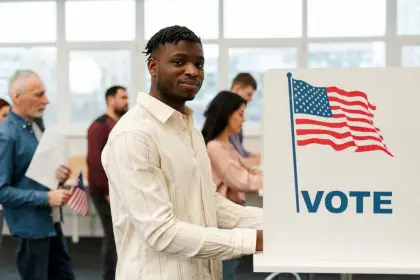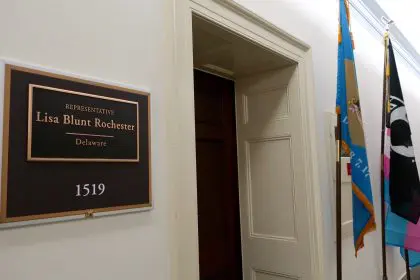 With the exception of the president and maybe a few Capitol Hill police and some cleaning staff, as expected, the majority of the nation’s political establishment is comprised of white men. Even the people who work for the senators and congressmen and women are mostly white, this according to the 2011 edition of the National Journal survey of “Hill People,” which is a demographic survey that examines the 319 congressional staffers who hold the key posts in the legislative leadership offices and committees.
With the exception of the president and maybe a few Capitol Hill police and some cleaning staff, as expected, the majority of the nation’s political establishment is comprised of white men. Even the people who work for the senators and congressmen and women are mostly white, this according to the 2011 edition of the National Journal survey of “Hill People,” which is a demographic survey that examines the 319 congressional staffers who hold the key posts in the legislative leadership offices and committees.
Not only are these individuals mainly white, they are predominantly male also, since the Republicans took over the House in January 2010. The survey, which is conducted every three years and is the seventh edition since it was started in 1987, notes that about 93 percent of top staffers on the Hill are white and about 70 percent are male.
Other points of note include the fact that Democratic staffers are 62 percent male while Republican staffers are 73 percent male. And although the Hispanic and Latino population is growing in this country, their numbers as top staffers of key committees has dropped to near 1 percent from 2 percent in both 2003 and 2007. In addition, 50 percent of Democrats live in D.C., while 62 percent of Republicans reside in Virginia.
The most popular graduate schools for staffers were Georgetown, Yale, George Washington University and the University of Virginia.
Given this, it is not improbable to outline tenable policy outcomes that may come about due to this skewed misrepresentation of the American populous. Politicians as well as the aides they employ, have a huge impact in the shaping of the nation’s laws. Thus, policy that is formulated may often lack vital input from women and minorities, which is essential when these policies may impact women and people of color in particular.
These are the people responsible for finding experts to testify at hearings, which may result in a biased corpus of experts to present on issues that tend to mostly affect people of color, women, and the poor. A lack of diversity leads to the biased policy-making process that may ignore the perspectives of women and people of color. –torrance t. stephens, ph.d.















